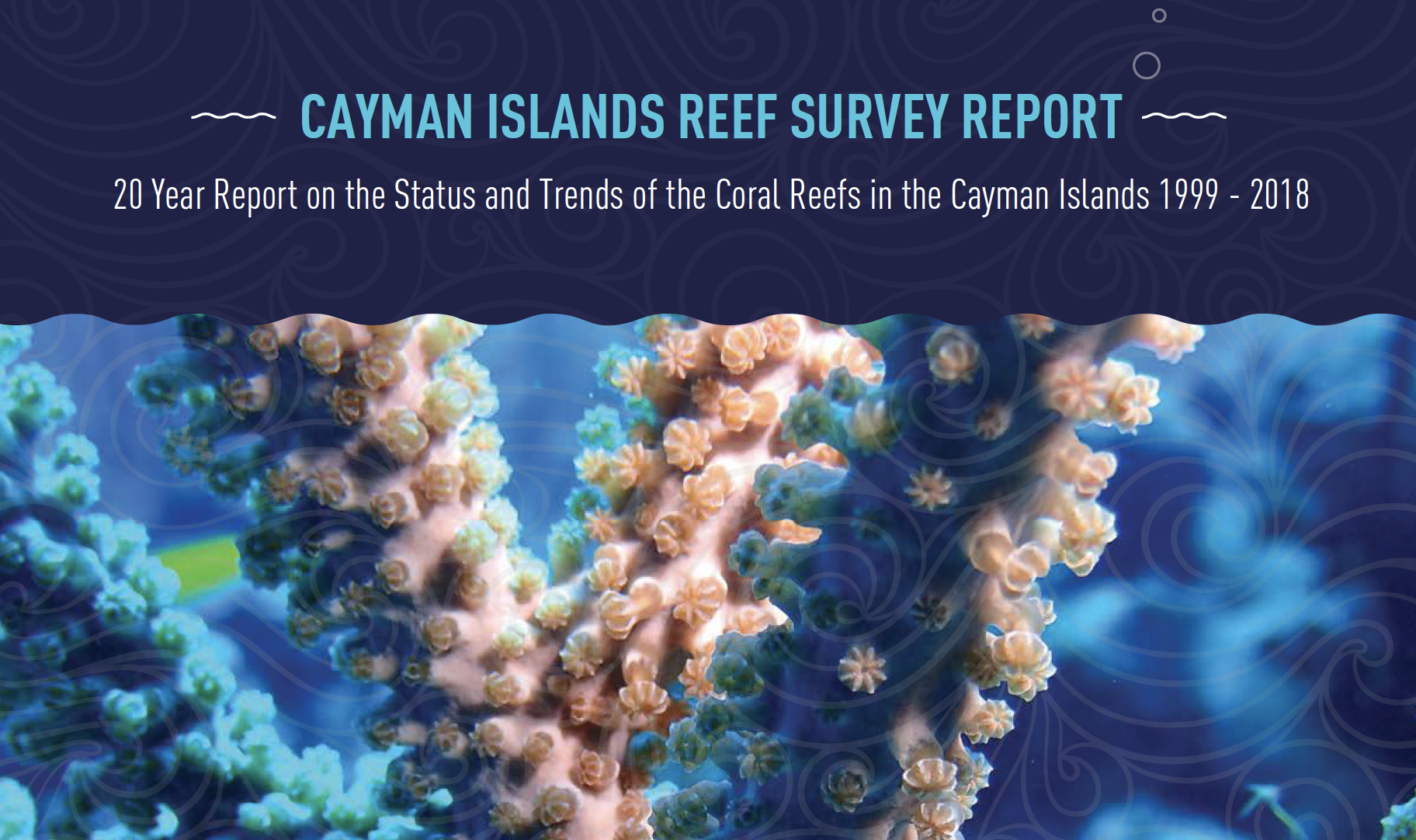CCMI Releases Report on Status & Trends of Cayman’s Reefs Over 20 Years
20 Year Report on the Status and Trends of the
Coral Reefs in the Cayman Islands 1999 – 2018
Key Messages
Twenty years ago, a team of scientists coordinated by the Central Caribbean Marine Institute conducted their first survey of the reefs around the Cayman Islands (Grand Cayman, Cayman Brac and Little Cayman). They recorded the presence of 37 species of stony corals, 423 species of fish and identified 58 new fish species. Like today, coral cover was highly variably across the region but unlike today, it was excellent (37%) at several sites.
In 2018, researchers revisited the sites to again capture a snapshot of the reefs. They recorded decreased coral cover and size, stability in fish density and size, and increased detrimental macroalgal across the region. The 20 Year Report on the Status and Trends of the Coral Reefs in the Cayman Islands 1999 – 2018 is prepared for our stakeholders to raise awareness of the importance of increased protection of this critical ecosystem because it is still among the healthiest in the entire Caribbean region.
We are reporting that by 2018:
- Total fish density (of all fish species combined) has not changed on any island and fish sizes have increased. The recent proposed increase of MPAs to 46% across the Cayman Islands should support this trend.
- Fleshy algal cover, a negative factor for coral recruitment, has increased significantly on Grand Cayman (34%-57%) and Cayman Brac (50%-64%). Increased nutrients (eutrophication) and/or the absence of key herbivores are likely causes.
- Coral cover which provides the complex structure for fish and invertebrates has declined for the three islands from a ‘good’ rating with 21% cover in 1999 to ‘fair’ with 17% cover in 2018. Average coral cover decreased from 21% to 15% on Grand Cayman, from 28% to 22% on Little Cayman and from 15% to 13% on Cayman Brac.
- Average coral size has decreased and larger species are not fulfilling their growth potential. However, the presence of small corals indicates the reefs are persisting.
These results are no surprise, coral reefs have undergone several global stress events since 1999. Therefore, the results should be taken into context and the message is quite clear: the Cayman Islands’ reefs are in fair condition and increased protection is needed for the coral reefs to recover. Whilst there has been a decline in coral health since 1999, all stakeholders should invest in the future of our coral reefs by supporting their protection and restoration.
We thank an anonymous donor and the Darwin Initiative for making this report possible. The full summary report can be found HERE.
Please contact Kholden@reefresearch.org for further comment.
BACK
 CONTACT
CONTACT gallery
gallery facebook
facebook instagram
instagram youtube
youtube twitter
twitter